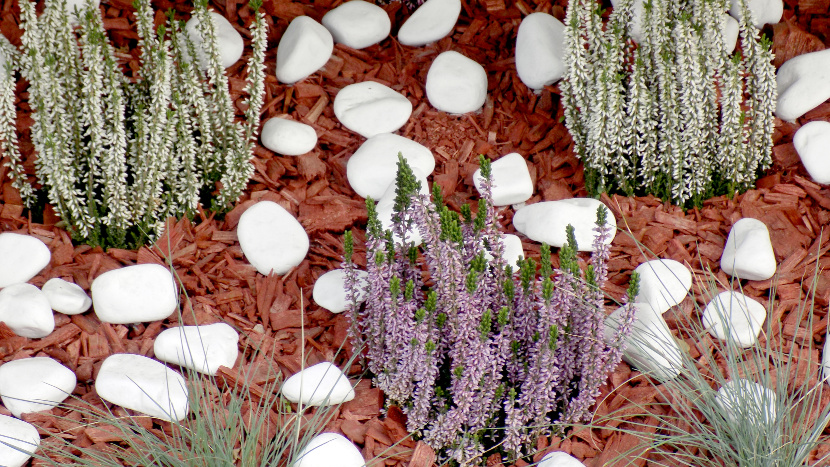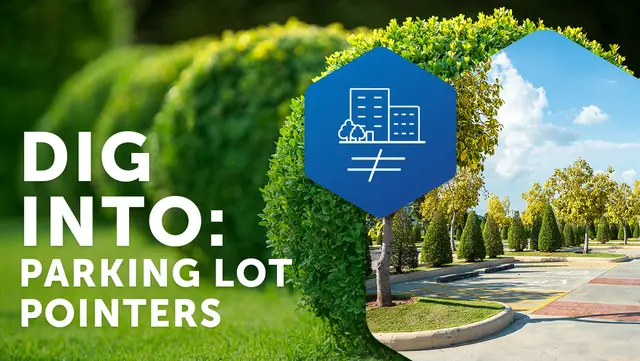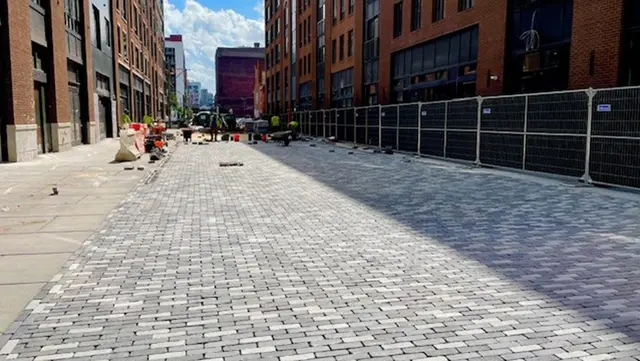
Best Mulch Material for Commercial Property
Mulching is one of the most beneficial things you can do for your property
Mulching is much more than just an aesthetic uplift to your property’s façade. It’s a first-line defense against soil erosion and compaction. It inhibits weed growth, protects your plants from extreme temperatures, and helps retain soil moisture levels. Mulching should be considered an investment with guaranteed yields.
Choosing Your Medium

There are two types of materials to choose from. The first, and arguably the most widely used, is organic. These naturally decompose and they add nutrients such as potassium, nitrogen, phosphorous, and trace elements back to the soil. Examples of organic materials include ground leaves, shredded bark, pine needles, or compost.
The second type of mulch is made from synthetic materials that aren’t biodegradable. These typically are made from rocks, pebbles, and stones.
When and How Much to Mulch
After a clean-up and the beds have been edged in the spring, you are ready to lay down the first application - usually 1- to 2-inches deep. The second, 1-inch application will come in the late summer to late fall.
The Benefits
Retains Moisture Levels: Moisture evaporates in the hot summer months through the soil. A covering of mulch blocks the sun, allowing the soil to stay cooler and thus retain moisture levels for plants in the landscape. In fact, moisture evaporation can be reduced by as much as 10 to 50 percent by covering the soil.
Maintains Soil Nutrients: Using organic materials helps condition the soil and enhancing the microbial activity. As they break down, they enhance the overall chemistry of the soil by increasing the number of good bacteria, fungi, and insects. The "good bugs" help keep the "bad bugs" away. The organic nutrients during decomposition encourage earthworms to naturally aerate the soil, which improves soil structure and nutrient cycling.
Protects and Insulates: As the summer temperatures rise, so will the soil temperatures. The mulch covering your soil will prevent the sun from baking through the surface, keeping your plants’ roots cooler. Conversely, in the winter months, the mulch will help the soil retain heat, helping prevent the soil from alternately freezing and thawing. This will protect the plants’ roots from being pushing out of the ground and exposing them to freezing temperatures and frost.
Controls Weeds: You can significantly reduce the number of weeds in your flower beds by following two simple rules. First, remove existing weeds and then apply a pre-emergent herbicide. Second, lay a 1- to 3-inch layer of mulch to discourage new weeds from emerging.
Prevents Soil Erosion: While mulching helps to lock the moisture in your soil, it also helps to keep your soil from washing and blowing away. Spreading mulch over the surface of the soil protects it against raindrops striking the soil. Soil exposed to high winds and high erosion potential may need to utilize synthetic materials to protect it from shifting winds. Synthetic erosion blankets are ideal for protecting hillsides.
Let Us Help You Reap the Benefits
Your local BrightView team of experts is ready to help you determine the best materials to support your commercial landscape while taking into consideration your design elements, region, water, and temperature conditions.



